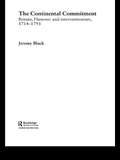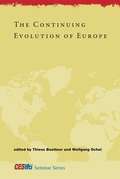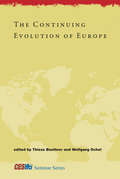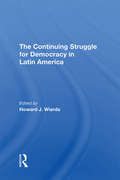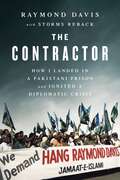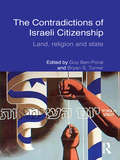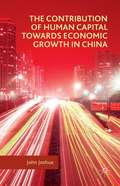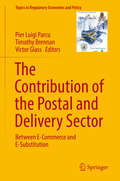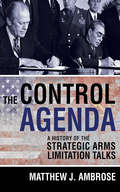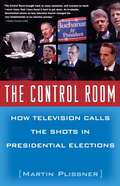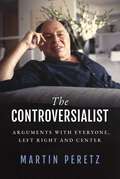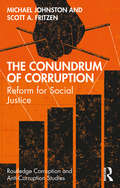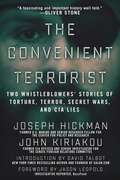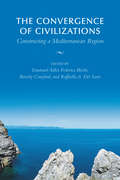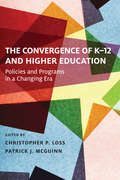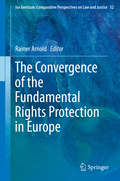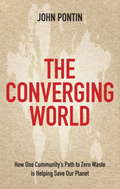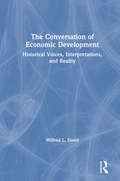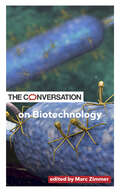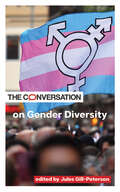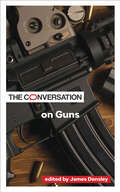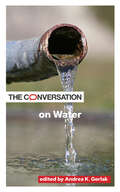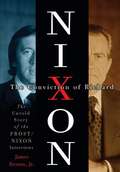- Table View
- List View
The Continent of International Law
by Barbara KoremenosEvery year, states negotiate, conclude, sign, and give effect to hundreds of new international agreements. Koremenos argues that the detailed design provisions of such agreements matter for phenomena that scholars, policymakers, and the public care about: when and how international cooperation occurs and is maintained. Theoretically, Koremenos develops hypotheses regarding how cooperation problems like incentives to cheat can be confronted and moderated through law's detailed design provisions. Empirically, she exploits her data set composed of a random sample of international agreements in economics, the environment, human rights and security. Her theory and testing lead to a consequential discovery: considering the vagaries of international politics, international cooperation looks more law-like than anarchical, with the detailed provisions of international law chosen in ways that increase the prospects and robustness of cooperation. This nuanced and sophisticated 'continent of international law' can speak to scholars in any discipline where institutions, and thus institutional design, matter.
The Continental Commitment: Britain, Hanover and Interventionism 1714-1793
by Jeremy BlackRecent debates about British political and military strategies, derived in particular from dissension about Britain’s relationship with Europe and from disagreement over the Iraq war, has led to a greater awareness of the problematic nature of the concept of ‘national interests’. This major new work delivers a long view of this issue, its twin strands are captured by an assessment both of the Continental commitment and British interventionism in the 18th Century. The extent to which Britain’s rise to superpower status in America and Asia was related to the Continental connection, and her Hanoverian interests, is a central theme of this study, as is the relationship between the domestic position of the Crown and its interests as Electors of Hanover. The issue of Continental interventionism opens up the question of how alliances generate their own pressures, at the same time that they are supposed to help overcome challenges; while also indicating how the domestic support for alliances shifts, creating its own dynamics that in turn affect the international dimension. This book will be of great interest to students and scholars of international relations, British foreign policy, British history and war and conflict studies.
The Continuing Evolution of Europe
by Thiess Buettner Wolfgang OchelThe European Union began with efforts in the Cold War era to foster economic integration among a few Western European countries. Today's EU constitutes an upper tier of government that affects almost every level of policymaking in each of its twenty-seven member states. The recent financial and economic crises have tested this still-evolving institutional framework, and this book surveys key economic challenges faced by the EU. Prominent European economists examine such topics as the stability of the financial markets and possible policy options to reduce future vulnerability to crises, including Glass-Steagull-style narrow banking; the effect of emerging economies such as China and India on Europe's economic position; the protection of national interests in industrial policy; reforming and preserving the welfare state in the face of unemployment, population aging, and worker mobility within the EU; and improving the EU's institutional framework by reassigning responsibilities among supranational, national, and local governments. Among the conclusions that emerge from these analyses are the necessity for banking regulation as well as budgetary discipline; the need to consider global as well as European integration; and the idea that an environment that fosters internal competition will increase Europe's competitiveness internationally.
The Continuing Evolution of Europe (CESifo Seminar Series)
by Thiess Buettner Wolfgang OchelEconomists address key challenges facing the EU, including financial instability, welfare state reform, inadequate institutional framework, and global economic integration.The European Union began with efforts in the Cold War era to foster economic integration among a few Western European countries. Today's EU constitutes an upper tier of government that affects almost every level of policymaking in each of its twenty-seven member states. The recent financial and economic crises have tested this still-evolving institutional framework, and this book surveys key economic challenges faced by the EU.Prominent European economists examine such topics as the stability of the financial markets and possible policy options to reduce future vulnerability to crises, including Glass-Steagull-style narrow banking; the effect of emerging economies such as China and India on Europe's economic position; the protection of national interests in industrial policy; reforming and preserving the welfare state in the face of unemployment, population aging, and worker mobility within the EU; and improving the EU's institutional framework by reassigning responsibilities among supranational, national, and local governments.Among the conclusions that emerge from these analyses are the necessity for banking regulation as well as budgetary discipline; the need to consider global as well as European integration; and the idea that an environment that fosters internal competition will increase Europe's competitiveness internationally.
The Continuing Struggle For Democracy In Latin America
by Howard J. WiardaThis integrated collection of original essays evaluates and assesses whether democracy is viable in Latin America and, if so, how and in what form. The authors examine the significance, for both Latin America and the United States, of the dominance of authoritarian political systems in most Latin American countries; explore the implications of asse
The Contractor: How I Landed in a Pakistani Prison and Ignited a Diplomatic Crisis
by Storms Reback Raymond DavisA lot has been written about the time contractor Raymond Davis spent in a Pakistani jail in 2011. Unfortunately, much of it is misleading—or downright false—information. Now, the man at the center of the controversy tells his side of the story for the very first time. In The Contractor: How I Landed in a Pakistani Prison and Ignited a Diplomatic Crisis, Davis offers an up-close and personal look at the 2011 incident in Lahore, Pakistan, that led to his imprisonment and the events that took place as diplomats on both sides of the bargaining table scrambled to get him out. How did a routine drive turn into front-page news? Davis dissects the incident before taking readers on the same journey he endured while trapped in the Kafkaesque Pakistani legal system. As a veteran security contractor, Davis had come to terms with the prospect of dying long before the January 27, 2011 shooting, but nothing could prepare him for being a political pawn in a game with the highest stakes imaginable. An eye-opening memoir, The Contractor takes the veil off Raymond Davis's story and offers a sober reflection on the true cost of the War on Terror.
The Contradictions of Israeli Citizenship: Land, Religion and State (Routledge Studies in Middle Eastern Politics)
by Bryan S. Turner Guy Ben-PoratThis book provides an integrated analysis of the complex nature of citizenship in Israel. Contributions from leading social and political theorists explore different aspects of citizenship through the demands and struggles of minority groups to provide a comprehensive picture of the dynamics of Israeli citizenship and the dilemmas that emerge at the collective and individual levels. Considering the many complex layers of membership in the state of Israel including gender, ethnicity and religion, the book identifies and explores processes of inclusion and exclusion that are general issues in any modern polity with a highly diverse civil society. While the focus is unambiguously on modern Israel, the interpretations of citizenship are relevant to many other modern societies that face similar contradictory tendencies in membership. As such, the book will be of great interest to students and scholars of political science, political sociology and law.
The Contribution of Human Capital towards Economic Growth in China
by John JoshuaThis book develops a human capital model to explain transformational growth within different stages of economic development, which will induce technological changes and consequently will require a change in human capital. China is a case study in transition and can provide useful lessons to other emerging economies.
The Contribution of the Postal and Delivery Sector: Between E-commerce And E-substitution (Topics In Regulatory Economics and Policy Ser.)
by Timothy Brennan Pier Luigi Parcu Victor GlassThis book addresses major issues facing postal and delivery services throughout the world. Worldwide, there is currently a considerable amount of interest in postal and delivery economics. The industry is in a state of near crisis and drastic change is needed. The European Commission and member States are still wrestling with the problem of how to implement entry liberalization into postal markets, how to address digital competition, and how to maintain the universal service obligation (USO). The Postal Accountability and Enhancement Act of 2006 in the U.S. has perhaps created and exacerbated the problems faced by USPS. Post Offices (POs) have been slow to address the threat of electronic competition. On the other hand, e-commerce presents opportunities for POs to expand their presence in parcel delivery and perhaps help finance or redefine the USO. A major aim of this book is to address strategies POs can use to reinvent themselves for the digital age.This book compiles original essays by prominent researchers in the field, which will be selected and edited from papers presented at the 25th Conference on Postal and Delivery Economics held in Barcelona, Spain, May 24-27, 2017. That conference, and this volume, commemorates the memory of Michael Crew who organized twenty-four prior conferences and co-edited previous conference volumes. This book is a useful tool not only for graduate students and professors, but also for postal administrations, consulting firms, and Federal Government departments.
The Control Agenda: A History of the Strategic Arms Limitation Talks
by Matthew J. AmbroseThe Control Agenda is a sweeping account of the history of the Strategic Arms Limitation Talks (SALT), their rise in the Nixon and Ford administrations, their downfall under President Carter, and their powerful legacies in the Reagan years and beyond.Matthew Ambrose pays close attention to the interplay of diplomacy, domestic politics, and technology, and finds that the SALT process was a key point of reference for arguments regarding all forms of Cold War decision making. Ambrose argues elite U.S. decision makers used SALT to better manage their restive domestic populations and to exert greater control over the shape, structure, and direction of their nuclear arsenals.Ambrose also asserts that prolonged engagement with arms control issues introduced dynamic effects into nuclear policy. Arms control considerations came to influence most areas of defense decision making, while the measure of stability SALT provided allowed the examination of new and potentially dangerous nuclear doctrines. The Control Agenda makes clear that verification and compliance concerns by the United States prompted continuous reassessments of Soviet capabilities and intentions; assessments that later undergirded key U.S. policy changes toward the Soviet Union. Through SALT’s many twists and turns, accusations and countercharges, secret backchannels and propaganda campaigns the specter of nuclear conflict loomed large.
The Control Room
by Martin Plissner"Thirty-five years ago, sad to say, CBS, NBC, and ABC created the modern New Hampshire primary." So says The Control Room, a gritty look at how network news has come to dominate every stage of presidential selection from the earliest announcements to the final swearing in. As we embark on another of the quadrennial circuses that determine how the world's most powerful country passes its crown, The Control Room shows us who really cracks the whip. Martin Plissner, former political director of CBS News, has played a central role in the network coverage of every presidential campaign since 1964. Now, drawing on his intimate knowledge of life inside the control room, he provides a lively and authoritative account of the ways television has come to dominate presidential politics in the final third of the twentieth century. Blending personal anecdotes with fascinating mini-histories, Plissner shows how all the elements of the contest for national power in America -- the primaries, the conventions, and the final counting of the ballots -- are shaped by the struggle among the networks for supremacy in viewership and breaking news on ever-dwindling budgets. How did Ross Perot trounce both George Bush and Bill Clinton in primaries he never entered? And how did Pat Buchanan's far-right call to arms become the main event at the 1992 Republican National Convention? Why did the country expect a Carter-Reagan photo finish in 1980 and a Clinton landslide in 1996 -- neither of which happened? The answers to all of these questions begin in the network control rooms. As the race for the White House heads toward a new century, Plissner reveals how television news coverage will decide who gets attention and when, who is on the rise and who is down the chute, when the race begins and when it ends, and what you care about when you vote for president. "The men and women who call the shots at the network news divisions do have an agenda," writes Plissner. Find out what it is in this fascinating insider's report.
The Controversialist: Arguments with Everyone, Left Right and Center
by Martin PeretzFrom his deep involvement in the civil rights and anti-war movements of the 1960s to his almost forty years at the head of the New Republic, Martin Peretz traces his personal history alongside those of the cultural and political centers—Harvard, Wall Street, Washington—in which he was a key player for decades.From 1974 to 2012, during his years as publisher and editor-in-chief of the New Republic, Martin Peretz was a familiar presence on the political scene. In its time under his leadership, the magazine was always fresh, erudite, contrarian, and brave. Anyone interested in finding out the most distinctive expert takes on the issues that mattered—whether they be domestic or international, cultural or political—knew that the New Republic was required reading. The Controversialist begins in a vibrant but tragedy-stricken community of Yiddish Jews in his native Bronx and takes Peretz, blessed with that rare trait of always being in the right place at the right time, into the same rooms as some of the most prominent writers, thinkers, businessmen, activists, and politicians of the twentieth and twenty-first centuries. Peretz&’s insights into his relationships with these men and women—many of them his students, teachers, colleagues, friends, and, of course, enemies—are both original and illuminating. Through his examination of the personalities, not least his own, at the center of the events that have defined the postwar and neoliberal decades, Peretz makes a rich and compelling argument for the ideals that have been the focus of his life: liberalism, democracy, and Zionism. In revisiting this rich life, he considers, too, what will come next now that those ideals are no longer assured.
The Conundrum of Corruption: Reform for Social Justice (Routledge Corruption and Anti-Corruption Studies)
by Michael Johnston Scott A. FritzenThis book argues that it is time to step back and reassess the anti-corruption movement, which despite its many opportunities and great resources has ended up with a track record that is indifferent at best. Drawing on many years of experience and research, the authors critique many of the major strategies and tactics employed by anti-corruption actors, arguing that they have made the mistake of holding on to problematical assumptions, ideas, and strategies, rather than addressing the power imbalances that enable and sustain corruption. The book argues that progress against corruption is still possible but requires a focus on justice and fairness, considerable tolerance for political contention, and a willingness to stick with the reform cause over a very long process of thoroughgoing, sometimes discontinuous political change. Ultimately, the purpose of the book is not to tell people that they are doing things all wrong. Instead, the authors present new ways of thinking about familiar dilemmas of corruption, politics, contention, and reform. These valuable insights from two of the top thinkers in the field will be useful for policymakers, reform groups, grant-awarding bodies, academic researchers, NGO officers, and students.
The Convenient Terrorist: Two Whistleblowers’ Stories of Torture, Terror, Secret Wars, and CIA Lies
by David Talbot John Kiriakou Joseph Hickman Jason LeopoldA startling spotlight on the darkest corners of America’s "War on Terror,” where nothing is quite what it seems.The Convenient Terrorist is the definitive inside account of the capture, torture, and detention of Abu Zubaydah, the first "high-value target” captured by the CIA after 9/11. But was Abu Zubaydah, who is still being indefinitely held by the United States under shadowy circumstances, the blue-ribbon capture that the Bush White House claimed he was? Authors John Kiriakou, who led the capture of Zubaydah, and Joseph Hickman, who took custody of him at Guantanamo, draw a far more complex and intriguing portrait of the al-Qaeda "mastermind” who became a symbol of torture and the "dark side” of US security. From a one-time American collaborator to a poster boy for waterboarding, Abu Zubaydah became a "convenient terrorist” a way for US authorities to sell their "War on Terror” to the American people.
The Convergence of Civilizations
by Raffaella Del Sarto Beverly Crawford Emanuel Adler Federica BicchiRecent efforts by the United States and its allies to promote democracy, security, and stability in the Middle East owe much to the Euro-Mediterranean Partnership (EMP) - also known as the Barcelona Process - an important region-building plan in the Mediterranean region since 1995. The Convergence of Civilizations represents the output of an innovative and much needed collaborative project focused on the EMP. Editors Emanuel Adler, Beverly Crawford, Federica Bicchi, and Rafaella A. Del Sarto have set out to show that regional security and stability may be achieved through a cultural approach based on the concept of regional identity construction, and aim to take stock of the EMP in relation to this goal.The contributors to this collection focus on the obstacles Mediterranean region construction faces due to post 9/11 regional and global events, the difficulties of the Israeli-Palestinian peace process, tensions between the EU and the US over Iraq, and the expected consequences of EU enlargement. They also seek to bring the EMP and region-making practices to the attention of American scholars in order to promote a more fertile academic exchange.Ultimately, the contributors demonstrate that the EMP and related region-making practices, while failing so far to promote the development of a Mediterranean regional identity and to achieve regional stability, suggest nonetheless a viable model for regional partnership and cooperation, and thus, for preventing a 'clash of civilizations' in the long haul. The Convergence of Civilizations will be an important tool for meeting the current global challenges being faced by nation-states as well as those in the future.
The Convergence of K-12 and Higher Education: Policies and Programs in a Changing Era (Educational Innovations Series)
by Christopher P. Loss and Patrick J. McGuinnIn The Convergence of K–12 and Higher Education, two leading scholars of education policy bring together a distinguished and varied array of contributors to systematically examine the growing convergence between the K–12 and higher education sectors in the United States. Though the two sectors have traditionally been treated as distinct and separate, the editors show that the past decade has seen an increasing emphasis on the alignment between the two. At the same time, the national focus on outcomes and accountability, originating in the K–12 sector, is exerting growing pressure on higher education, while trends toward privatization and diversification—long characteristic of the postsecondary sector—are influencing public schools. This volume makes the powerful case that it is no longer possible to think of one sector in the absence of the other, given the economic, demographic, and technological forces that are pushing the educational system toward convergence. Taken together, the chapters in this book provide a promising new line of inquiry for examining contemporary questions in education policy.
The Convergence of the Fundamental Rights Protection in Europe
by Rainer ArnoldThe book gives insightinto the structures and developments of the fundamental rights protection inEurope which is effective at the levels of the national Constitutions, theEuropean Convention of Human Rights and, for the EU member States of the EUFundamental Rights Charter. The contributions of renowned academics fromvarious European countries demonstrate the functional interconnection of theseprotection systems which result in an increasing convergence. Basic questionsare reflected, such as human dignity as foundation of fundamental rights orpositive action as a specific form of equality as well as the concept of rightsconvergence. In this latter contribution the forms of direct reception of adifferent legal order and of the functional transfer of principles and conceptsare analyzed. Particular reference is made to the EU Charter, the UnitedKingdom Human Rights Act as well as to France and Germany. It becomes obvioushow important interpretation is for the harmonization of national andconventional fundamental rights protection. Traditional institutionalapproaches like the dualist transformation concept in Germany are functionallyset aside in the harmonization process through constitutional interpretation. Specificstudies are dedicated to the field of the EU Fundamental Rights Charter and to theEuropean impacts on the national fundamental rights protection in selectedcountries such as the "new democracies" Poland, Romania and Kosovo as well as more traditional systems such as Spain, Italy, the Nordic countries or Turkey.
The Converging World: How One Community's Path to Zero Waste is Helping Save Our Planet
by John PontinTHE CONVERGING WORLD tells the incredible story of one community's attempt to change their world for the better. Faced with the challenge of making the English village of Chew Magna a 'zero waste' society, Pontin developed a groundbreaking non-profit scheme that twinned them with Tamil Nadu, a poor rural community in southern India. He helped set up a system of wind turbines for Tamil Nadu that would not only reduce the community's reliance on fossil fuels but also provided a local source of sustainable income. The carbon credits produced through this scheme were then sold in Chew Magna to individuals and businesses to offset emissions they cannot yet reduce - all part of a larger local zero-waste effort. The effects of this scheme have been dramatic and exhilarating - while Chew Magna gets closer to zero waste, Tamil Nadu's carbon emissions and poverty levels are diminishing accordingly. Pontin's story presents a model of action for any individual or community concerned about climate change, environmental damage, social inequality and the plight of the third world.
The Converging World: How one community's path to zero waste is helping save our planet
by John PontinTHE CONVERGING WORLD tells the incredible story of one community's attempt to change their world for the better. Faced with the challenge of making the English village of Chew Magna a 'zero waste' society, Pontin developed a groundbreaking non-profit scheme that twinned them with Tamil Nadu, a poor rural community in southern India. He helped set up a system of wind turbines for Tamil Nadu that would not only reduce the community's reliance on fossil fuels but also provided a local source of sustainable income. The carbon credits produced through this scheme were then sold in Chew Magna to individuals and businesses to offset emissions they cannot yet reduce - all part of a larger local zero-waste effort. The effects of this scheme have been dramatic and exhilarating - while Chew Magna gets closer to zero waste, Tamil Nadu's carbon emissions and poverty levels are diminishing accordingly. Pontin's story presents a model of action for any individual or community concerned about climate change, environmental damage, social inequality and the plight of the third world.
The Conversation of Economic Development: Historical Voices, Interpretations and Reality
by Wilfred L. DavidThis book investigates the belief patterns that underly alternative perspectives of development thought and policy. It discusses the differing theories and models of development in a discursive manner to highlight the importance of interaction between academic discourse and everyday life experiences. Utilizing insights drawn from the history of ideas, economic history, philosophy and political economy, the author shows how the field of development economics has evolved.
The Conversation on Biotechnology (Critical Conversations)
by Marc ZimmerFrom the contributors to The Conversation, this collection of essays by leading experts in biotechnology provides foundational knowledge on a range of topics, from CRISPR gene sequencing to the ethics of GMOs and "designer babies."In The Conversation on Biotechnology, editor Marc Zimmer collects essays from The Conversation U.S. by top scholars and experts in the field, who present a primer on the latest biotechnology research, the overwhelming possibilities it offers, and the risks of its abuse. From an overview of CRISPR technology and gene editing in GMOs to the ethical questions surrounding "designer babies" and other applications of biotechnology in humans, it highlights the major implications biotechnology will bring for health and society. Topics range from the spectacular use of light to fire individual neurons in the brain to making plant-based meats; from curbing diseases with genetically modified mosquitoes to looking back on 40 years of opinions on IVF babies.The Critical Conversations series collects essays from top scholars on timely topics, including water, biotechnology, gender diversity, gun culture, and more, originally published on the independent news site The Conversation U.S.Contributors: Nathan Ahlgren, Ivan Anishchenko, Trine Antonsen, Jennifer Barfield, Pedro Belda-Ferre, Ari Berkowitz, Adeline Boettcher, Jason Delbourne, Kevin Doxzen, Mo Ebrahimkhani, Eleanor Feingold, J. Benjamin Hurlbut, Cecile Janssens, Samira Kiani, Amanda Kowalczyk, Mariana Lamas, Andrew Lapworth, Rebecca Mackelprang, Kathleen Merrigan, Saman Naghieh, Sean Nee, Dimitri Perrin, Christopher Preston, Jason Rasgon, Penny Riggs, Jason Robert, Oliver Rogoyski, Gary Samore, Sahotra Sarkar, George E. Seidel, Patricia A. Stapleton, Craig W. Stevens, Paul B. Thompson, Christopher Tuggle, Vikramaditya G. Yadav, Marc Zimmer
The Conversation on Gender Diversity (Critical Conversations)
by Jules Gill-PetersonFrom contributors to The Conversation, a look at gender diversity in the twenty-first century and the intricate and intersecting challenges faced by trans and nonbinary people.With media amplifying the voices of anti-trans legislators and critics, it is important to turn to the stories, research, and expertise of trans and nonbinary people in order to understand the reality of their experiences. In The Conversation on Gender Diversity, editor Jules Gill-Peterson assembles essential essays from The Conversation U.S. by experts on gender diversity. The essays guide readers through seldom-covered aspects of transgender history and present an overview of the social and political barriers that disenfranchise trans people and attempt to remove them from public life. As these essays collectively show, trans and nonbinary people may be forced to be the face of gender and its diversity, but the cultural, political, and social realities of gender connect—and subject—everyone. Despite these challenges, there is an immense culture of love and support across the queer community that is bolstered by activists and allies working against transphobic attacks. Trans and gender-diverse youth are growing up in a world filled with ever-increasing hurdles and rising danger, even with the contemporary public recognition of trans life in culture and media. But they are not facing these challenges alone.The Critical Conversations series collects relevant essays from top scholars on timely topics, including water, biotechnology, gender diversity, gun culture, and more, originally published on the independent news site The Conversation U.S. Contributors: Robert L. Abreu, Catherine Armstrong, Stacy Branham, Christopher Carpenter, L. F. Carver, Mandy Coles, Arin Collin, George B. Cunningham, Avery Dame-Griff, Jules Gill-Peterson, Abbie Goldberg, Gilbert Gonzales, Frances Grimstad, Foad Hamidi, Elizabeth Heineman, Glen Hosking, Bethany Grace Howe, Jay A. Irwin, Shanna K. Kattari, Kacie Kidd, Terry Kogan, Vanessa LoBue, Gabriel Lockett, Megan K. Maas, Julie Manning Magid, Em Matsuno, Tey Meadow, Kyl Myers, Madeleine Pape, Ruth Pearce, Jae A. Puckett, Samantha G. Rosenthal, Morgan Klaus Scheuerman, Elizabeth A. Sharrow, Carl Sheperis, Donna Sheperis, stef m. shuster, Jules Sostre, Ryan Storr, Carl Streed, Diana M. Tordoff, Travers
The Conversation on Water (Critical Conversations)
by Andrea K. GerlakFrom the contributors to The Conversation, a compelling essay collection on the world's water crises and the necessary steps to build a more sustainable and equitable water future for all.Water-related crises are affecting more and more communities, both in the United States and internationally. If we continue to delay upgrading our infrastructure and addressing rising environmental concerns, we risk further destabilizing already strained systems—or, worse, causing a catastrophic collapse. In The Conversation on Water, water scholar and professor Andrea K. Gerlak collects essays from The Conversation U.S. on critical issues related to water from leading experts in everything from public policy to environmental engineering.Gerlak pays special attention to the threats facing our water systems today—covering insufficient infrastructure, climate change, and pollution—and integrates them with essays on technologies for harvesting water and Indigenous knowledge in governing the oceans. She then proposes solutions that present opportunities for hope and reform. From new partnerships and collaborative efforts to alternative governance practices and new scientific tools and community approaches, readers will learn about viable pathways forward and will understand the deep social and political dimensions of water governance. Understanding these challenges is the first step toward building a more sustainable and equitable water future for all. The Critical Conversations series collects essays from top scholars on timely topics, including water, biotechnology, gender diversity, gun culture, and more, originally published on the independent news site The Conversation U.S. Contributors: Roger Bales, Kevin Befus, Robert Blasiak, Ellen Bruno, Bethany Caruso, Sebastien Chastin, Craig E. Colten, Joseph Cook, Michelle DiBenedetto, Farshid Felfelani, Gabriel Filippelli, Michail Georgiou, Burke Griggs, Gary Griggs, Drew Gronewold, Marissa Grunes, Danielle Hare, Brian Haus, Dan Johnson, Carol Kwiatkowski, Rosalyn R. LaPier, Katharine Mach, Amahia Mallea, Daniel McCool, Jacob Miller-Klugesherz, Nobuhito Mori, Thomas Mortlock, Suzanne O'Connell, Itxaso Odériz, Joseph D. Ortiz, Meg Parsons, Raquel Partelli-Feltrin, Yadu Pokhrel, Manzoor Qadir, Julie Reimer, Landolf Rhode-Barbarigos, Richard Rood, Asher Rosinger, Matthew R. Sanderson, Heidi Schweizer, Alan Seltzer, A. R. Siders, Rodolfo Silva-Casarín, Vladimir Smakhtin, Bruce Sutherland, Lara Taylor, Emily Ury, Ton Van den Bremer, Andrew J. Whelton
The Conviction of Richard Nixon
by James Reston Jr.While Richard Nixon avoided conviction on impeachment charges by resigning from the White House, the 1977 televised interviews conducted with Nixon by David Frost convicted Nixon as a political pariah in the minds of many viewers. The author of this book served as the Watergate advisor to Frost for the interviews and here recounts his insider's view of the interviews. The text was written contemporaneously but is being published now for the first time. Annotation ©2008 Book News, Inc. , Portland, OR (booknews. com)

